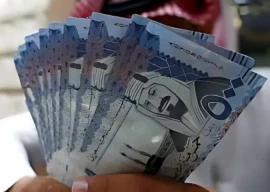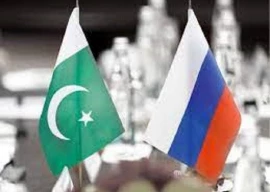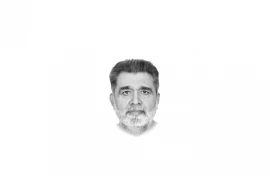
Under the auspices of the United Nations, the 9th of December is observed as the international anti-corruption day.
Realising that "corruption is a complex social, political and economic phenomenon that affects all countries" and that "corruption undermines democratic institutions, slows economic development and contributes to governmental instability" and also that "corruption attacks the foundation of democratic institutions by distorting electoral processes, perverting the rule of law and creating bureaucratic quagmires" on October 31, 2003, the General Assembly adopted the United Nations Convention against Corruption.
The United Nations Office on Drugs and Crime (UNODC) was made the secretariat for the convention. Since then, 190 parties have committed to the convention's anti-corruption obligations, showing near-universal recognition of the importance of good governance, accountability and political commitment.
The assembly designated December 9 as the International Anti-Corruption Day, to raise awareness of corruption and the role of the convention in combating and preventing it. The convention entered into force in December 2005.
Under the UN theme "Uniting with Youth against Corruption: Shaping Tomorrow's Integrity", the campaign for the International Anti-Corruption Day 2024-2025 focuses on the role young guardians of integrity play as advocates, raising awareness about corruption and its impacts on their communities. They will actively participate in discussions, share their experiences and propose innovative solutions to combat corruption.
The campaign will amplify voices of the integrity leaders of tomorrow, allowing them to express their concerns and aspirations, with the hope that their appeals will be heard and acted upon.
Whereas the total world youth is estimated at 1.8 billion, Pakistan has a youth bulge of its own due to the high rate of population growth. The United Nations, for statistical purposes, defines those persons between the ages of 15 and 24 as youth without prejudice to other definitions by member states.
Almost one-fifth of Pakistan's population falls in this bracket. Demographers and social scientists suggest that size of youth can contribute positively or negatively depending upon the socioeconomic conditions and strength of the economy.
If health, educational and training facilities are adequately available to the youth and the economy has the capacity to employ them in the mainstream of economic progress, it will contribute to enhance productivity and further facilitate economic growth.
On the other hand, if the young faction of the population doesn't have access to these basic resources, there is a risk that this idle, rudderless, pessimistic and sceptical bulk will resort to crime, treachery, violence, radicalism and so on. All this can lead to mass-scale corruption.
The term corruption, however, needs to be understood in a sense broader than it is generally talked about. A tragedy for our youth is that it has been brought up with the word corruption humming around them.
The youngsters might have no idea what corruption is, yet they believe and know dozens of 'corrupt' around them, thanks to the daily repetition of this word.
While keeping the general public informed about the malfunctioning of the sociopolitical system is the prime task of the media and intelligentsia, and has been accomplished quite efficiently, sadly sometimes boundaries are crossed in presenting the facts.
Social media has been typically used to disseminate not-so-fair information. So, many fake news, concocted stories, unconfirmed happenings are circulated and spread across all tiers of society so hurriedly that by the time actual facts are known, many an innocent mind had already been 'corrupted'.
While the youth, the future human capital, is urged and expected to maintain integrity, it may be made aware of the overarching concept of this evil.
In general, corruption is usually perceived in a narrow sense of individual bribery and financial gains. The real concept of corruption is actually much wider and has extensively been pondered upon since centuries.
All prominent thinkers, philosophers, academics and scholars; in the intellectual domain, along with economists, sociologists, politicians and statesmen; on the pragmatic ground, have been delving into this realm of human behaviour that impacts the entire sociocultural fabric.
The human history has proved that the corrupt action of a single human being or a group can put the socioeconomic fate of the entire nation, region and even the whole planet, at stake.
Going beyond the simple form of corruption by people, termed normally as social corruption, the researchers and philanthropists have constantly been pinpointing other levels of corruption from a philosophical viewpoint including the corruption of principles, corruption of moral behaviour, corruption of organisations, and corruption of states.
Of all these, the corruption by organisations (institutional corruption) and corruption by states (societal or cultural corruption) are more devastating in today's world when physical, geographic borders are no longer a hindrance to passing of, good or bad, effects from one place to another.
The definition of corruption itself covers a scope larger than mere bribery and individual material gains. The word 'corrupt' refers to any person, object or entity adulterated or debased by change from an original or correct condition.
It follows thus naturally that any act, behaviour or conduct of any individual, group, organisation or state; contrary to the original principles of fairness, truth, trust and integrity will fall under the definition of corruption, be it in business deals, political mandates, sports and cultural dynamics, cross border dialogues, multilateral negotiations and so on.
At the government level, bad governance, poor planning and policy, inefficient implementation, bureaucratic hitches and glitches, biased procedures of reward and punishment, nepotism; all can be termed corruption.
On the general public side, illegitimate profiteering, fraudulent businesses, usury, work shirking, tax evasion, avoiding legal civic responsibilities, damaging public properties, anti-state rumoring, fanning socio-ethnic scuffles, harassing the weaker, immorality, dishonesty; all merit to be called corruption.
Incidentally and sadly, whenever the subject of corruption is debated, it is usually geared towards government functionaries and institutions. The corrupt practices at the root level are seldom discussed.
Corruption has been proved contagious in nature. Individual corrupt actions permeate in society like an endemic. Fortunately, the vice versa is also true and encouraging. A single person or entity saying no to corruption will motivate hundreds to follow.
If the youth to be coordinated and coopted for shaping the future integrity; it has the right to comprehend and perceive corruption in a broader sense and wider spectrum.
The writer is the ex-joint economic adviser to the government of Pakistan, now a freelance consultant


1733984086-0/Untitled-(23)1733984086-0-165x106.webp)




1733949940-0/image-(8)1733949940-0-270x192.webp)
1733949197-0/image-(7)1733949197-0-270x192.webp)









COMMENTS
Comments are moderated and generally will be posted if they are on-topic and not abusive.
For more information, please see our Comments FAQ